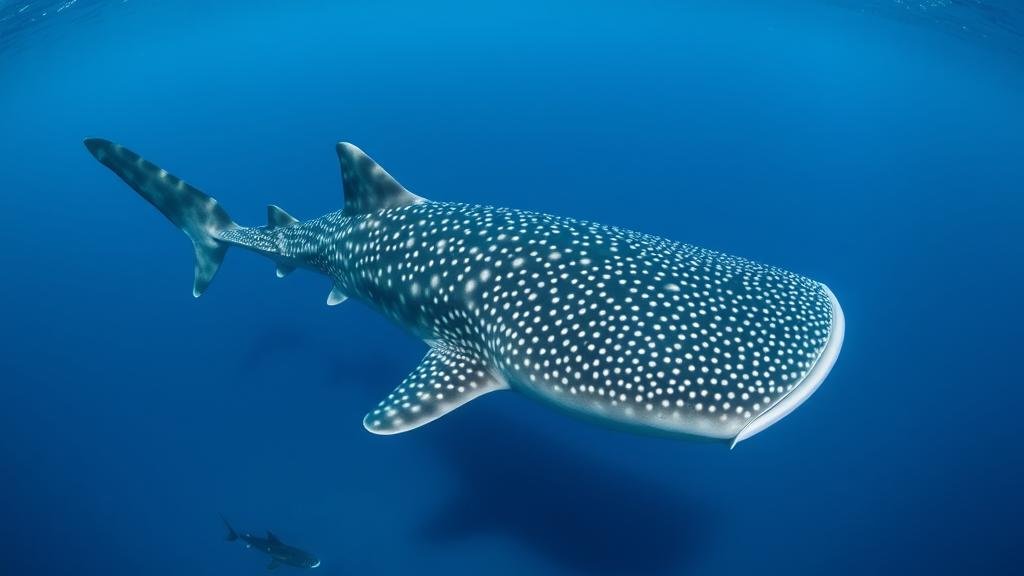Searching for rare shoals of whale sharks near hidden atolls in the Indian Ocean.
Searching for Rare Shoals of Whale Sharks near Hidden Atolls in the Indian Ocean
The Indian Ocean, with its vast expanse and biodiversity, is a sanctuary for various marine species, including the elusive whale shark (Rhincodon typus). These gentle giants, the largest fish in the ocean, often gather in specific locations, primarily near hidden atolls where their food sources are abundant. This article explores the fascinating world of whale shark shoals, their habits, and the significance of these hidden atolls in the Indian Ocean.
Understanding Whale Sharks
Whale sharks can grow up to 40 feet (12 meters) in length and can weigh as much as 20 tons. Despite their enormous size, they are filter feeders that primarily consume plankton, small fish, and eggs. These sharks are often sighted in warm waters, making the Indian Ocean an ideal habitat due to its optimal temperature and abundant food supply.
The Hidden Atolls of the Indian Ocean
Atolls are ring-shaped coral reefs, islands, or series of islets that encircle a lagoon partially or completely. The Indian Ocean hosts several notable atolls where whale sharks frequently congregate:
- Maldives Atolls: Comprising 26 atolls, the Maldives is famous for its rich marine life and is a prime location for observing whale sharks, particularly around South Ari Atoll where sightings are frequent year-round.
- Chagos Archipelago: This remote group of islands is known for its pristine marine environment and is less frequented by boats, offering a unique opportunity to encounter large shoals of whale sharks.
- Cosmoledo Atoll: Part of the Aldabra Group, this atoll is lesser-known but has reported sightings of whale sharks, particularly during the plankton bloom months from November to March.
Historical Context
Whale shark sightings in the Indian Ocean have a history dating back to ancient mariners who documented encounters with these magnificent creatures. Local cultures viewed them with reverence, often considering them a good omen. In the modern era, conservationists have dedicated efforts to study and protect these species, understanding their migratory patterns and feeding habits.
Conservation Concerns
While whale sharks are currently classified as vulnerable by the International Union for Conservation of Nature (IUCN), they face threats from overfishing, habitat destruction, and climate change. Key data points indicate that populations are declining due to bycatch in fishing operations and boat strikes. According to a study published in 2020, certain populations in the Indian Ocean have decreased by as much as 50% over the past 75 years.
Real-World Applications and Ecotourism
The pursuit of whale shark sightings has burgeoned into a thriving ecotourism industry that benefits local economies. Tour operators in the Maldives and Seychelles provide diving and snorkeling experiences, drawing in eco-conscious travelers eager to interact with these majestic creatures. This not only promotes the preservation of marine environments but also creates financial incentives for local communities to engage in sustainable practices.
Actionable Takeaways
For those interested in experiencing the beauty of whale sharks and the hidden atolls of the Indian Ocean, here are some key recommendations:
- Research and select reputable tour operators known for ethical wildlife interactions.
- Plan visits during the peak seasons, generally between November and April, to increase chances of sightings.
- Participate in conservation programs or citizen science initiatives to contribute to the protection of whale sharks.
In summary, searching for rare shoals of whale sharks near the hidden atolls of the Indian Ocean offers not just the thrill of witnessing these magnificent creatures but also a commitment to conservation efforts vital for their survival. With careful planning and respect for marine ecosystems, adventurers can play a role in protecting these gentle giants for generations to come.



